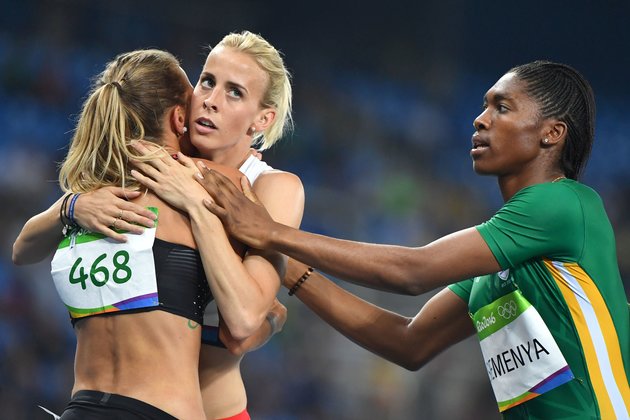-
Tips for becoming a good boxer - November 6, 2020
-
7 expert tips for making your hens night a memorable one - November 6, 2020
-
5 reasons to host your Christmas party on a cruise boat - November 6, 2020
-
What to do when you’re charged with a crime - November 6, 2020
-
Should you get one or multiple dogs? Here’s all you need to know - November 3, 2020
-
A Guide: How to Build Your Very Own Magic Mirror - February 14, 2019
-
Our Top Inspirational Baseball Stars - November 24, 2018
-
Five Tech Tools That Will Help You Turn Your Blog into a Business - November 24, 2018
-
How to Indulge on Vacation without Expanding Your Waist - November 9, 2018
-
5 Strategies for Businesses to Appeal to Today’s Increasingly Mobile-Crazed Customers - November 9, 2018
Rio Olympics 2016: Semenya sparks controversy with 800m win
Caster Semenya of South Africa took the gold medal in the Olympic 800 metres in a personal best time of 1:55.28 seconds.
Advertisement
USA champion Kate Grace, who set a personal best in the semis to make the final, finished eighth in 1:59.57.
Speaking after her victory, Semenya preferred to focus on her gold medal rather than “talk about some speculation”.
She refused to talk about the gender row that continues to engulf her after winning the Olympic gold.
Semenya, whose physical appearance is androgynous astonished observers at the World Athletics Championships in Berlin 2009 by her superiority on the track.
The 25-year-old has hyperandrogenism, which means her testosterone levels are well in excess of the vast majority of women.
The court of arbitration for sport made a careful examination of all the evidence about elite women athletes with naturally high testosterone and as a result suspended the hyperandrogenism rule introduced by IAAF and International Olympic Committee before the London Olympics.
The court ruled that there was insufficient evidence that the performance advantage caused by hyperandrogenism was so substantial that it warranted excluding women with elevated testosterone from competing unless they take medication or undergo treatment to change their bodies. I find it very sad when respected athletes condemn her without understanding why the CAS decision was fair.
She said previously: “Everyone can see it’s two separate races so there’s nothing I can do”.
“I think it was a wise decision (to pull out of the 400m) because the heat was just insane”. “I was doing it for my people, the people who support me”, Semenya is quoted as saying.
She added: “It’s not about looking at people, how they look, how they speak, how they run”. It’s not about being more muscular. I think about performing. “The advice would be for everybody to go out and have fun”. The coaches told me: “just focus on running, nothing else”, Semenya told the media after winning her race, according to SuperSport.
The post Semenya runs like a man, 800m women lament appeared first on Vanguard News. But she was fast out at the start, hit the front after the first bend and finished the first lap there in 57:59.
Hours before Saturday’s final, International International Association of Athletics Federations (IAAF) president Sebastian Coe indicated that the world body would seek to revisit regulations regarding testosterone levels.
Sharp told the BBC after the race: “I have tried to avoid the issue all year”. Dutee trusts her legal team and is therefore, focusing on training and performance.
Advertisement
“We know how each other feel, but it is out of our control and how much we rely on people at the top sorting it out”.




























